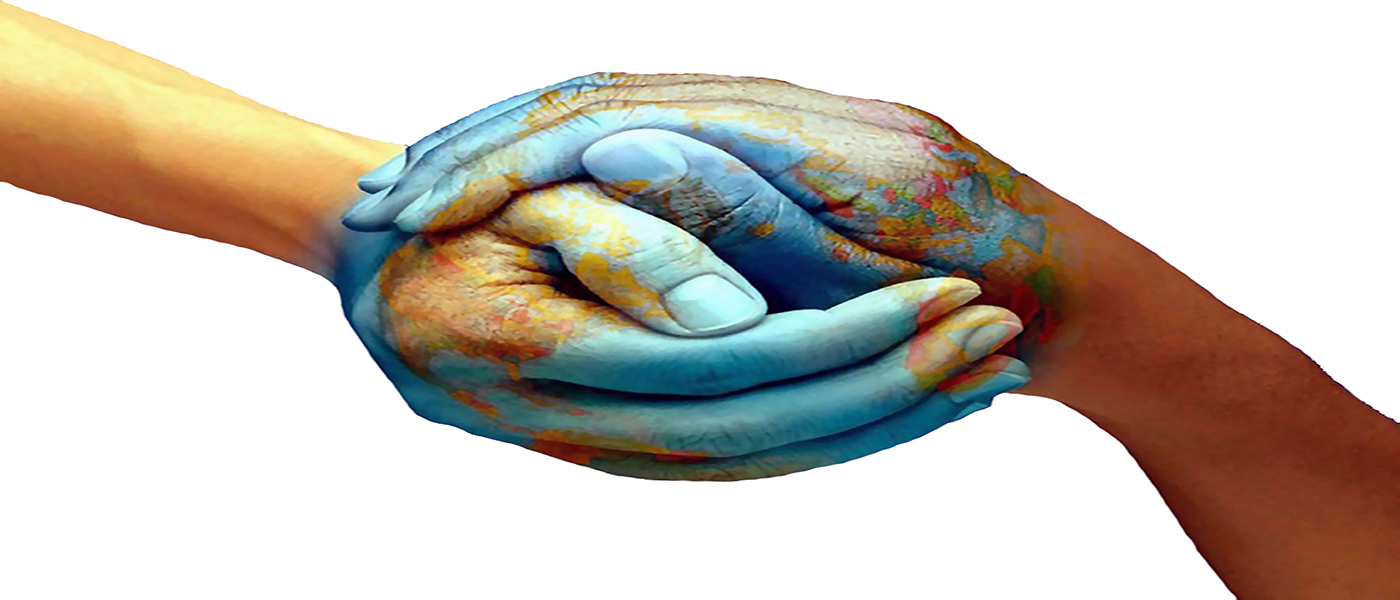

Who are Mahrams in Islam?
Every day we meet several people at work, in the shops, at the university, in the neighborhood, or at parties and gatherings with whom we communicate and interact. Talking, telling jokes, shaking hands, touching or kissing usually happen in these interactions; but, is a Muslim allowed to do all these with whoever he/she wants? Or is he/she permitted to be exposed to such acts? These and many similar questions are answered in Islam.
To clarify and form the relations among people, Islam has presented the concept of Maharim and the two categories “Mahram” and “non-Mahram” which sometimes serve as conditions, requirements, or the basis of several Islamic laws. Regarding the Islamic rules on marriage, these categories define who a person can and cannot marry. Likewise, when dealing with the Islamic dress code, i.e., explaining whom one must cover specific parts of a body in front of, the concept of Maharim is required.

Who is Mahram?
One’s Mahram is anyone whom it is permanently forbidden to marry because of blood ties, marriage ties or breastfeeding. However, a woman does not need to cover her hair and put on Hijab when she is in their presence. A woman's male Mahrams fall into three categories plus her spouse [1]. Mahrams for a man are derived similarly. The Maharim for both, extracted from the verses of the Holy Quran (4:22-23) and (24:31), are listed below [1], and all other people and relatives are considered as non-Maharams.
Categories of Maharim
Permanent or blood Mahrams, with whom one is Mahram through blood ties:
parents, grandparents, and further ancestors;
siblings;
children, grandchildren, and further descendants;
siblings of parents, grandparents, and further ancestors (cousins and their children are not Mahram);
children and further descendants of siblings;
In-law Mahrams, with whom one becomes Mahram through marriage ties:
father-in-law, mother-in-law;
son-in-law, daughter-in-law;
stepfather (mother's husband) if their marriage is consummated, stepmother (father's wife) even if their marriage is not consummated;
stepson (husband's son) even if their marriage is not consummated, stepdaughter (wife's daughter) if their marriage is consummated[i];
Rada or "milk-suckling Mahrams," with whom one becomes Mahram because of being breastfed by her. When a woman breastfeeds an infant that is not her child for a certain amount of time under certain conditions, she becomes the child's rada mother and everything concerning blood Mahrams apply here, such as rada father/mother, rada sister/brother, rada aunt/uncle and so on. In English, these can be referred to as milk-brother, milk-mother, etc. [ii].
Maharim and Marriage
It is forbidden (Haram) to marry Mahrams, but one can marry non-Mahrams who have reached puberty. As explained above, Married couples are Mahram to each other. But unlike other Mahrams, the limitations and rulings on looking and touching do not apply to them; i.e., married couples are the only ones allowed to touch and look at the whole body of one another; even the private parts.
Maharim and Social Interactions
Regarding social interactions, there are some rules according to the concept of Maharim:
Women and men are both required to keep their gazes downcast and should not stare at the other person when facing non-Mahrams or talk to them. Even Mahrams are not allowed to see certain parts of the body of each other (this will be discussed more under a separate topic “the Islamic rules on looking“);
When talking to non-Mahrams, the tone of voice should be serious, and the dialogues should be direct and as much as necessary. One should also avoid telling jokes and laughing loudly [iii];
Any physical contact (i.e., shaking hands, hugging touching) with non-Mahrams is forbidden (haram), except for curing patients. In this case, if a doctor of the same gender as the patient exists and can cure, then it is forbidden to refer to a non-Mahram doctor.
When being sole in a closed room (where no one else can enter, i.e., locked place), it is forbidden for a non-Mahram man to remain alone in the company of a non-Mahram woman. The Prophet of Islam (PBUH&HP) said: “No man is alone with a woman except that Satan is the third one present ” [2];
It is required (Wajib) to cover specific parts of a body in the presence of a non-Mahram according to the Islamic dress code. For men, this includes from navel to knee. For women, the clothing should cover their hair and body, but covering the face and the hands, from the wrist to the fingers, is not mandated [3].
Notes:
[i] sister-in-law and brother-in-law are not Mahram.
[ii] Refer to your source of emulation (Marja’ Taqlid) for more details and the rulings.
[iii] See the article on modesty.
References:
- Mahram and non Mahram
- S. H. al-Amili, “Wasail al-Shia”, vol. 20, p. 131.
- A. Aroussi Howayzi, “Tafsir Noor al-Thaqalayn”, vol. 3/589, T. 105.
Share This Article

6 Factors Leading to Muslims and non-Muslims Peaceful Coexistence in The Quran
Coexistence means living together, cooperating socially and economically of either the people of two countries to fulfill their livelihood or two individuals who might not share the same interests. In other words, coexistence includes being together, not interfering in others’ private affairs, and respecting the rights of others. Islam, which considers both the individual and social needs of human beings, offers a complete package for a thriving social life. Through its teachings, the Prophet’s (PBUH & HP) and infallible Imams’(AS) tradition (Sunnah), and the Quranic teachings, Islam has provided some clear guidelines for Muslims and the followers of other religions peaceful coexistence in the Quran. Here, we focus mostly on what the Quran offers in this regard.
1. Justice and Beneficence in Dealing with Others for A Peaceful Coexistence in the Quran
The first point raised about the peaceful coexistence in the Quran is that Muslims should deal with non-Muslims with justice and beneficence, as far as non-Muslims have not expressed any hostility against them and don’t respond to their kindness with hatred (60:8). In Surah Mumtahina, it is said that: “Allah forbids you only in regard to those who made war against you on account of religion and expelled you from your homes and supported [others] in your expulsion, that you make friends with them, and whoever makes friends with them—it is they who are the wrongdoers.”(60:9).
Accordingly, non-Muslims are in two groups — the first group who are in peace with Muslims and live peacefully with them. The Islamic government and Muslims of society should respect this group and recognize their rights. The second group is those who act against Muslims, Islam, and the Islamic government. Undoubtedly, they should be counteracted, and there would be no place for peace in this case [1]. That’s why Imam Ali (AS) had devoted a share of public treasury (Bayt al-mal) to help the needy people of other religions. It means that an Islamic government does not overlook non-Muslims, but recognizes their rights and supports them. (10:57)
2. Recognizing Freedom of Thought is an Underlying Factor in Muslims Peaceful Coexistence in the Quran
Humans naturally tend to reject any imposed idea or belief. And, the Quran never orders something which opposes to human’s nature. Hence, non-Muslims are not compelled to convert to Islam (2:256), and they are free to keep their religion. In Surah An’am, Prophet Muhammad (PBUH & HP) is told that: “Had Allah wished, they would not have ascribed partners [to Him]. We have not made you a caretaker for them, nor is it your duty to watch over them.” (6:107). Based on these verses, along with some others, Islam recognizes other Abrahamic religions, and no Muslim is permitted to force any non-Muslim to accept Islamic ideas. Still, Muslims should let non-Muslims to retain their own religious views and beliefs and to live peacefully in society.
3. Peaceful Religious Discussion with Others
If Muslims want to discuss their religious viewpoints with followers of other religions, they are told: “not to argue with the People of the Book, except in a manner which is best” (29:46). It means to exchange peacefully with logical reasoning and argument. Even in their discussions with polytheists, Muslims are prevented from insulting those whom they invoke besides Allah Almighty; otherwise, they would affront Allah Almighty out of hostility (6:108) [1]. It should be noted that the aim of these discussions should be clarifying the truth and not obliging others to convert. As stated above, no one is forced to accept what we believe. This manner ensures Muslims and non-Muslims peaceful coexistence in the Quran.
4. Islam recognizes other religions
In surah Baqara, it is stated that Prophet Muhammad (PBUH & HP) and the faithful have faith in what has been sent down to him (PBUH & HP) from Allah Almighty, and they believe in Allah Almighty, His angels, His scriptures and His apostles, and they make no distinction between any of His apostles (2:285). It means that a real believer should recognize all previous Prophets sent by Allah Almighty and what they have brought to humans from Him [2]. Besides, in Ayat 62, the followers of other religions like the Jews, the Christians, and the Sabaeans who are faithful to Allah and the Day of Judgement and act righteously are told to have their reward from Allah Almighty (2:62). This is another proof that Islam recognizes other religions. Also, it reveals that there have been faithful people among the followers of other religions who truly believed in Allah almighty according to the teachings of their faith.
5. Islam Encourages Peace-Making
In dealing with the opponents of Islam, Islam orders Muslims to accept if they offer peace and declare a ceasefire and emphasizes that: “Allah does not allow you any course [of action] against them” (4:90). In other verses, Muslims are told that: “If they incline toward peace, then you [too] incline toward it” (8:61).
6. Marriage and Friendship with non-Muslims
Another example that demonstrates Islamic teachings promote peaceful coexistence in the Quran with non-Muslims is that in the Quran, Muslims are told that: “the food of those who were given the Book is lawful to you, and your food is lawful to them” (5:5). Besides, according to the Quran, Muslim men can marry the chaste ones from among faithful women, and chaste women of those who were given the Book before Muslims, once their dowries are paid to them (5:5). These two instances show that Muslims are free to fraternize with non-Muslims and exchange with them in society.
What has been mentioned above are only some of the many Islamic guidelines that encourage treating others kindly and behaving friendly with the followers of other religions. That makes them incline slightly towards Islam, such that after a Christian boy who had converted to Islam changed his bad behavior with his mother, the mother was attracted and converted to Islam, too. This, together with many instances of the way that Prophet Muhammad (PBUH & HP) and Infallible Imams (AS) treated non-Muslims, proves Islam's deep care for the way Muslims deal with others which should ultimately lead them toward tolerance and maintaining a peaceful coexistence as stated in the Quran.
References:
- M. A. Amini, “The principle of peaceful coexistence with non-Muslims in Islam,” Ma’rifat Journal, no. 165, p. 35-52.
- M. H. Tabataba’ei, “Translation of Tafsir Al-Mizan, “vol. 2, p. 681.
Read More

What Is it Said about Prophet Moses in Islam? | Prophethood
In the first part of the story, we went through Prophet Moses in Islam and his childhood events, his youth and his journey to Midian (Madyan), where he met Prophet Shu’ayb (PBUH) and married his daughter, and after a few years, he decided to return to Egypt to help his people.
Prophet Moses in Islam
On the way to Egypt Moses and his family got lost in the desert. Suddenly “he descried a fire on the side of the mountain. He said to his family, ‘Wait! Indeed, I descry a fire! Maybe I will bring you some news from it, or a brand of fire so that you may warm yourselves’” (28: 29).
When Moses reached the fire, he was called, “‘O Moses! Indeed, I am your Lord! So take off your sandals. You are indeed in the sacred valley of Tuwa. I have chosen you; so listen to what is revealed” (20: 11-3).
So he became a messenger and was given certain miracles. Then he was ordered to “Go to Pharaoh” as “He has indeed rebelled” (20:24). Moses asked God to appoint a minister for him from his family; his brother, Aaron from his biological mother. And God accepted (20: 29-36).
Still, Moses and Aaron were afraid to go Pharaoh as they knew him and his power very well. It sounded impossible for both of them to go to Pharaoh and try to guide him to the right path and to ask him not to torture Children of Israel (Bani-Israel) anymore. But as God was aware of their fear, so He revealed to Moses: “We will strengthen your arm by means of your brother, and invest both of you with such authority that they will not touch you. With the help of Our signs, you two, and those who follow the two of you, shall be the victors” (28: 35).
One crucial point that the Quran emphasizes is that God even tells Moses and Aaron about how to speak to Pharaoh to make their words effective. God said to them: “Speak to him in a soft manner; maybe he will take admonition or fear” (20: 44). From this verse and the depiction of Moses in Islam, one can learn that if he/she wants to have an influential chat or speech with others, he/she should speak softly and with kindness so that the listener can hear and think in peace of mind [1].
1. Moses and Pharaoh
Moses and Aaron meet Pharaoh and Aaron turns his rod into a snake. Culture Club / Contributor / Getty Images
Moses and Aaron went to Pharaoh and said: “We are the apostles of your Lord. Let the Children of Israel go with us, and do not torture them! We certainly bring you a sign from your Lord, and may peace be upon him who follows guidance!” (20: 47)
As mentioned in the verses of chapter Taha, Moses started a discussion with Pharaoh, mostly based on issues about the unity of God and believing in the hereafter (20: 48 -55). And God “showed him all Our signs. But he denied [them] and refused [to believe them]. He said, ‘Moses, have you come to us to expel us from our land with your magic?” (20: 56-7)
Pharaoh decides to compete with Moses’ miracles with magic. So they set a date to compete (20: 58 -9).
The Magicians Submitted to Moses
On the day of competition, the magicians said: “O Moses! Will you throw first, or shall we? He said, ‘No, you throw first’” (20: 65 -6). “So they threw down their sticks and ropes, and said, ‘By the might of Pharaoh, we shall surely be victorious!” (26: 44) “Thereat Moses threw down his staff, and behold; it was swallowing what they had faked” (26: 45).
Since the magicians were the best magicians from around Egypt that Pharaoh had gathered, and they had complete magic trainings, as soon as they saw the act of Moses, they realized that it could, by no means, be magic. [2] “There at the magicians fell down prostrating. They said, ‘We have believed in the Lord of Aaron and Moses!’” (20: 70)
2. Years of Prophethood in Egypt
After the magicians believed in God of Moses and other people also became believers, the elite of Pharaoh’s people said: “Will you leave Moses and his people to cause corruption in the land, and to abandon you and your gods?” (7: 127)
It can be driven from the above verse that after Moses’ victory against magicians, Pharaoh might have given Children of Israel (Bani-Israel) some sort of freedom in which they had the chance to spread the religion of Moses. Therefore, the elites of Pharaoh’s people warned him about this issue, and Pharaoh replied: “…We will kill their sons and spare their women, and indeed we are dominant over them” (7: 127) [3].
As Pharaoh threatened Children of Israel (Bani-Israel), Moses advised his people that in case they wished to overcome the enemy they should “Turn to Allah for help and be patient” and to make sure that “the outcome will be in favor of the Godwary” (7: 128) [4].
As followers of Moses complained to him about Pharaoh’s torments, he said: “Maybe your Lord will destroy your enemy and make you successors in the land, and then He will see how you act” (7: 129). It seems that they wished by the arrival of their savior, everything would be changed at a glance and they would have no hardship anymore, while Moses informed them that for reaching the success they had to go through hard times, and have patience and piety.
And in the latter verse it mentions that “maybe” your Lord will help you by destroying your enemy, and if He does so, He will do it to test you and see what you will do if you come to power [5].
3. Signs for the People of Pharaoh
During the years that Moses and his people were living in Egypt, God tested People of Pharaoh by many different challenges [ii], so that they might return to God. But they never believed.
They kept saying that all the signs were magic
As the first wave of incidents did not bring about a change in the heart of People of Pharaoh, and they said to Moses “Whatever sign you may bring us to bewitch us, we are not going to believe you” (7: 132), God sent down to them harder challenges such as “a flood and locusts, lice, frogs and blood, as distinct signs. But they acted arrogantly, and they were a guilty lot” (7: 133).
It is said in the exegesis of the above verse that People of Pharaoh kept denying Moses and kept calling his miracles as magic. Therefore, God sent them a flood. They went to Moses and said if he stopped it, they would believe in him. But when the flood stopped, they turned their back on Moses. The same happened by sending locusts, lice, frogs, and blood and they kept denying [6].
4. Leaving Egypt with Bani –Israel
After many years that Moses tried to convey God’s messages to Pharaoh and his people, they still kept denying him.
So, Allah Ordered Moses to take his people out of Pharaoh’s land; “We revealed to Moses, [saying], ‘Set out with My servants at night, and strike out for them a dry path through the sea. Do not be afraid of being overtaken, and have no fear [of getting drowned]” (20: 77).
In the next part of this article, we will follow the story of Moses in Islam from the time they were saved from Pharaoh.
Notes:
[i] Children of Israel (Bani-Israel) were the generation of Prophet Jacob or Israel (PBUH), who at the time of Prophet Joseph (PBUH), migrated to Egypt and settled there for years. (12: 93-9)
[ii] “Certainly We afflicted Pharaoh’s clan with droughts and loss of produce, so that they may take admonition. But whenever any good came to them, they would say, ‘This is our due.’ And if any ill visited them, they took it for ill omens attending Moses and those who were with him. (Look! Indeed the cause of their ill omens is from Allah, but most of them do not know)” (7: 130-1)
References:
- Makarem –e Shirazi, N. Tafseer-e Nemouneh, vol. 13, p. 209
- Makarem –e Shirazi, N. Tafseer-e Nemouneh, vol. 13, p. 247
- Makarem –e Shirazi, N. Tafseer-e Nemouneh, vol. 6, p. 309- 310
- Makarem –e Shirazi, N. Tafseer-e Nemouneh, vol. 6, p. 311
- Makarem –e Shirazi, N. Tafseer-e Nemouneh, vol. 6, pp. 312 – 13
- Makarem –e Shirazi, N. Tafseer-e Nemouneh, vol. 6, pp. 321-3
Read More

